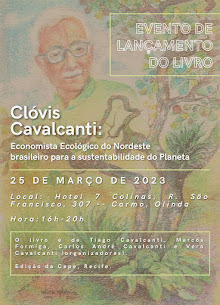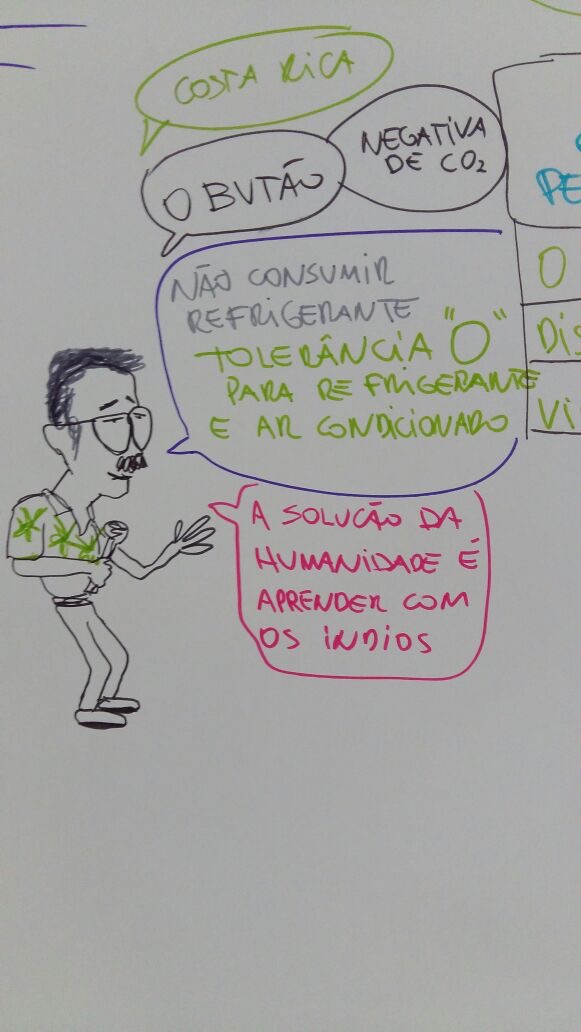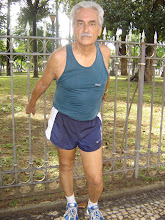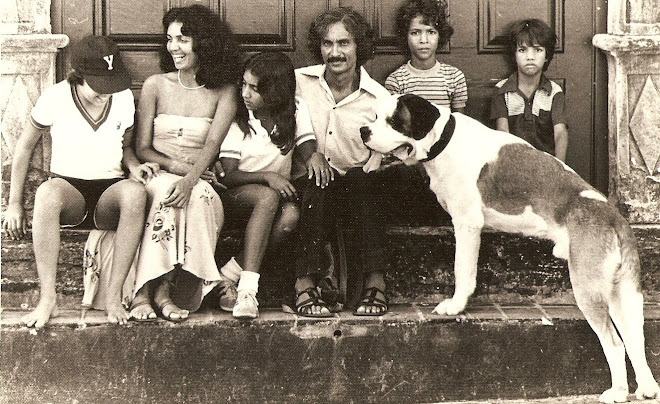 |
| Amélia, Clóvis, Cecília e Luciana |
 |
| Cristovan Buarque, Clóvis Cavalcanti e Yolanda Kakabadze (presidente da WWF) |
 |
| Abertura Oficial da conferência |
 |
| Participantes presentes na abertura ouvindo o discurso de Clóvis: |
Statement at the opening of
the 2012 Meeting of the International Society for Ecological Economics (ISEE). Rio
de Janeiro, June 16 2012
Entropy
and Affection:
An
Ecological Economics Perspective of Sustainability
Clóvis Cavalcanti
(Joaquim Nabuco Foundation, Recife, PE, Brazil)
Dear Colleagues and Friends:
It is a great honor to
chair this opening session of ISEE 2012. I thank the organizers for giving me
this rare opportunity. In fact, once again, I have to thank them, to thank
Amélia Rodrigues, Paulo Mibieli, Peter May, and the whole membership of EcoEco,
for graciously bestowing upon me, last October, the title of EcoEco’s Honorary President.
As I told them when to my surprise I knew of the laurel, I consider their
decision, first of all, a sign of affection. And affection, dear Colleagues and
Friends, seems to me the great strength, the cement of Ecological Economics
(and of an ecological economy): affection for our fellow human beings,
affection for the beauty of Nature, love for life. This is why we challenge so
strongly the prevailing concept of development which puts continuous economic
growth – a biophysical impossibility in the first place – before anything else.
The inspiring contribution of Nicholas Georgescu-Roegen introducing the entropy
law in the conventional vision of the economic process has shown conclusively
that to speak of infinite growth in a finite planet, to use his expression, is
“a graceless tautology”. Herman Daly, one of ISEE’s pillars – if not its symbol
– has spoken wisely and frequently about the impossibility of an
ever-increasing economy in a fuller, dramatically-changed world. Of course, we
want development. But growth is another thing – a beast that its worshippers
want to camouflage with a green dye. As Ashok
Khosla, a former director of the UNEP, stated this week in Rio, “People from
the ‘brown economy’ are very powerful. It is they who finance governments, who
get votes, who manage political parties, so it is not easy to ignore them”.
This “brown economy” is the force that has been overtaking and modifying the original
green economy proposal of the UNEP in 2010, whose traits addressed a basic need
for sustainable development. This is another sad case of the wolf assuming
Little Red Riding Hood’s disguise.
I owe Herman Daly my
discovery of Ecological Economics. We met for the first time in March 1970 at
Yale where he was staying as a research fellow. I went there to visit James
Tobin who had been my teacher. Some friends had the good idea to take me to see
Herman. Ten years later he read a newspaper article I wrote for Jornal do Brasil, an important Brazilian
daily from Rio (now only online). It dealt with
the entropy law and critiqued development. Herman wrote me a letter and sent
some of his publications. I had already met Georgescu, here in Rio, in July
1964, when he gave a couple of lectures at the Vargas Foundation, where I was studying,
and presented his thermodynamic approach to economics. In the first quarter of
1970, I was a visiting scholar at Vanderbilt, where Georgescu taught. My office
was next to his. This allowed me to see him very often. Once he invited me and
my wife to his house. I had a splendid time (I still remember his comment that
Portuguese seemed Latin spoken with a Polish accent). With this background, and
being myself for some time already entirely uncomfortable with traditional
economic theory, it was easy to become an ecological economist. But in 1967,
when my friend Senator Cristovam Buarque was my student of microeconomics in
the master’s program of economics in Recife,
I still reproduced as a tape recorder what I had learned from books and
conventional economics lectures. This had changed in July 1983, when I
organized a mini-course called “The Economics of the Eighties” at the annual
meeting of the Brazilian Society for the Advancement of Science in Belém. Both
Cristovam and Herman, besides my good friend Dirceu Pessoa, who died in 1987 in a strange plane
crash, were invited to share with me the responsibility of conveying the
principles of economics with a new perspective. Amélia Rodrigues Enríquez, a
brilliant past president of EcoEco, who is present here, was a student at that time
in Belém, took part in the mini-course, and also worked as a volunteer worker
for the conference.
I know some of our fellow
members of ISEE give importance, perhaps too much, to economic growth. However,
after having the opportunity to learn something from Georgescu-Roegen, after
reading Kenneth Boulding (and participating with him in ISEE’s Wye Island
workshop in 1990), after having read and listened to E.F. Schumacher, Daly,
Joan Martínez Alier, Ignacy Sachs, Armando Mendes, José Eli da Veiga, and
others, after having enjoyed the company on several occasions (and read the
important contributions) of the great Brazilian political economist Celso
Furtado, who was also my teacher at Yale, I am fully convinced of Furtado’s 1974
explanation of growth as a myth. Our affection for humanity should lead us to
think on improving the human condition. This is the task I conceive for
Ecological Economics following the advice of Alfred North Whitehead that we are
here, first, to live well and, secondly, to live better. We are not here to own
more and more gadgets – some plainly stupid. Five hundred years of Western
civilization in Brazil shows that insatiable greed in the face of the vegetal
opulence that existed here led to what the environmental historian Warren Dean
classified as the enthronement of entropy. To avoid this fate is why we need
sustainable development or prosperity. As a matter of fact, we need simply
development, for there does not exist such a thing as unsustainable
development. For, if it did exist, it would lead – as an unsustainable bridge
or fishery – to collapse.
We do not want to see our
world collapsing. We love life. We want to preserve nature for our descendants.
This takes me back to affection as a basis of sustainability and of ISEE. Herman
Daly sent me recently the instructive text of a lecture that Wendell Berry, the
admirable American poet, essayist, novelist, and farmer (I also own a farm),
gave this year at the National Endowment for Humanities in Washington, DC.
In it he says that “it is in affection that we find the possibility of a
neighborly, kind, and conserving economy”. This plus the fact that land abuse
cannot brighten the human prospect and leads instead to the destruction of
communities, families, small businesses, and so on, impose the need to conserve
“the wealth and health of nature”. The concept of sustainability requires,
according to Berry,
that “the fertility cycle of birth, growth, maturity, death, and decay … should
turn continuously in place … so that nothing is wasted”. Berry explains that “For this to happen in
the stewardship of humans, there must be a cultural cycle in harmony with the
fertility cycle”. The cultural cycle would then be what is meant by
sustainability. Berry
concludes: “The fertility cycle turns by the law of nature. The cultural cycle
turns on affection”.
Let us make ISEE a humane
enterprise turning on affection. And let us not forget that, as Cecília
Meireles, a Brazilian poet I like, wrote, “Above and below the earth/ one day
the gold must run dry”.
I now have the pleasure to
give the floor to Yolanda Kakabadse, president of WWF, whom I met in Ecuador –
although she certainly does not remember it – a few years ago.
Obrigado. Thank you.
 |
| Clóvis com o professor Dessarda da Índia e Joshua Farley |
 |
| Com Sunita Narain da ìndia |
 |
| Um nordestino, uma iraniana e um indiano |
|
|
|
|







































Nenhum comentário:
Postar um comentário